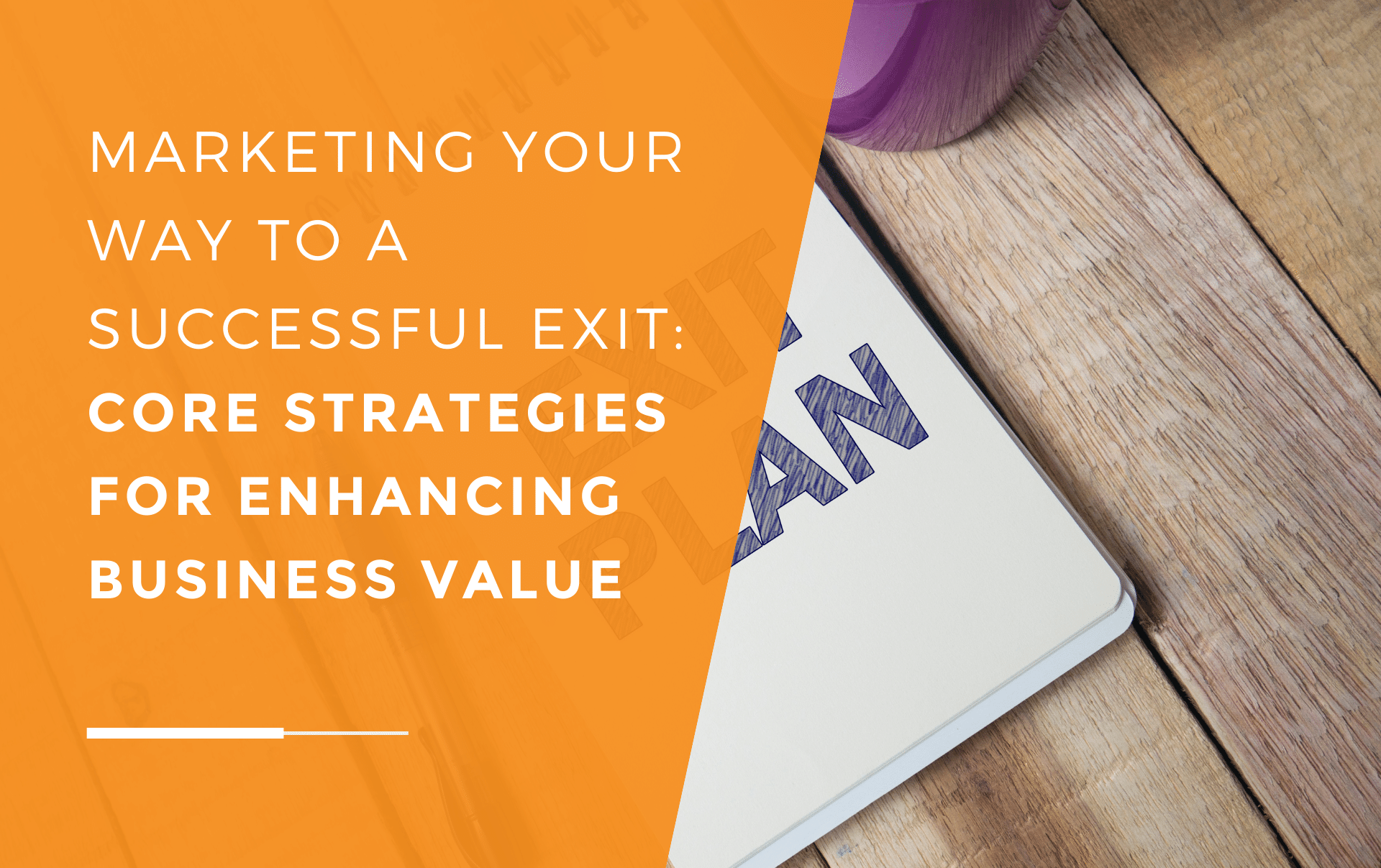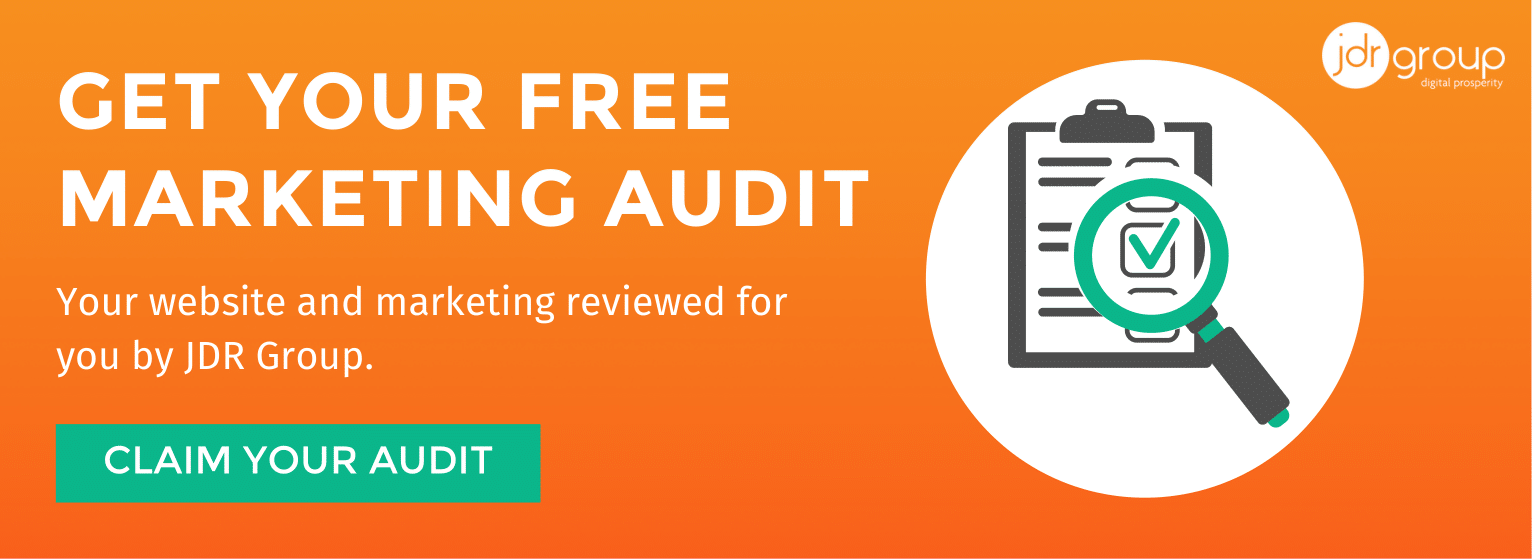Exit Planning 101: How UK Companies Are Valued
by Will Williamson on 15-Aug-2024 12:30:00

Exit planning is a crucial facet of any long-term business development strategy, and becomes especially pressing once business owners start reaching a ‘certain age’. As a business owner, exit planning should be considered at the same time as your retirement plans. Assuming for now that you will eventually want to sell your business, rather than transfer ownership to a family member, exit planning involves creating a roadmap to maximise the value of the business before its sale, transfer, or merger with another company.
In this article, we’ll look at the nuts and bolts of how British companies are valued, and the various methods used to determine the worth of a business.
Market Value Versus Intrinsic Value
The two main metrics used to value a company are market value and intrinsic value. The market value of a business is the current price for which it could be bought or sold on the current market, and is strongly affected by desirability and competition. Intrinsic value, on the other hand, represents the true value of an asset or business, considering the company’s management, physical and intellectual assets, property, and future potential.
Market value can fluctuate over time depending on perceived demand, supply chain factors, and external conditions, which is why intrinsic value is a more accurate long-term representation of your business’s worth. However, market value is often used for valuation purposes, especially when working with an agent, as it gives a good indication of what the business could be sold for if it went to market today.
Methods Used To Evaluate UK Limited Companies
There are several methods that prospective buyers and investors use to determine the value of a British company, the main ones being:
1. Market Comparable Approach:
This strategy involves comparing your business to similar companies in the same sector that have recently been sold or valued. These valuations are used as a benchmark to determine the worth of your business. It’s similar to how estate agents value new properties coming onto the market.
2. Discounted Cash Flow (DCF):
The DCF method calculates your business’s value by forecasting its future cash flow and then discounting it to your present value. Estimates are made using the projected growth rate of your company and the wider economy, as well as the time value of money (TVM – a financial concept that recognises that money available today is worth more than the same amount in the future due to its potential earning capacity).
3. Asset-Based Valuation:
Asset-based valuation determines a business’s worth based on its tangible assets – e.g. plant, property, stock, and equipment, and intangible assets, which include bespoke software, patents, trademarks, and other intellectual property. The value is calculated by subtracting liabilities (e.g. debts, payroll) from your total asset value.
4. Earnings Multiple Method:
This strategy uses a multiple of earnings, such as price to earnings ratio, to determine your company’s value. The method is often used for valuing publicly traded/plc businesses, but not so frequently for private limited companies.
What Factors Affect Your Valuation?
Unfortunately, valuation is not an exact science, and there is less standardisation in the world of business sales than there is for the property market. In practice, the value of a business rests on several factors, such as:
1. Your Sector:
investors in different industries often use different valuation benchmarks and metrics. For instance, tech companies and start-ups are often valued on their potential for growth, while manufacturing and logistics businesses may be valued on their assets.
2. Financial Performance:
the financial performance of your business, including its revenues, historic profits, and cash flow, can greatly influences valuation. Many investors value consistency and sustained growth over sketchy growth or spikes in demand.
3. Economic Conditions:
external economic conditions, including interest rates, geopolitical and social factors, technology, and the general economic climate can also strongly impact the market value of your business and the amount you can expect from the sale.
The Importance Of An Accurate Company Valuation
To obtain the maximum value for your business before its eventual sale, an accurate business valuation is essential. If your business is undervalued, you essentially leave potential profits on the table, while an overvalued company may struggle to find a buyer or secure financing for transfer (e.g. in a management buy-out). For the best value, a business should ideally perform well using all four valuation methods. Although individual companies normally excel in one or more areas compared to others, it’s worth investing long-term in your comparative market share, cash flow resilience, asset base, and earnings, in order to broaden your appeal to potential investors.
Next Steps
JDR work with business owners to maximise the value of their companies as part of an exit strategy. Whether you are actively planning your retirement or your exit is decades in the future, it’s worth considering today how to develop and grow your business over time. Get in touch with one of our experienced business development team today for more information.
Image Source: Canva
- Inbound Marketing (SEO, PPC, Social Media, Video) (829)
- Strategy (368)
- Sales & CRM (195)
- Marketing Automation & Email Marketing (191)
- Business Growth (167)
- Website Design (161)
- Hubspot (138)
- Lead Generation (117)
- Google Adwords (99)
- Content Marketing (94)
- Conversion (53)
- Case Studies (47)
- News (47)
- Ecommerce (39)
- Webinars (35)
- SEO (26)
- AI (20)
- Events (19)
- LinkedIn Advertising (17)
- Video (17)
- Video Selling (15)
- Software training (13)
- Niche business marketing (11)
- The Digital Prosperity Podcast (10)
- Facebook Advertising (6)
- HubSpot Case Studies (5)
- January 2026 (7)
- December 2025 (15)
- November 2025 (6)
- October 2025 (17)
- September 2025 (16)
- August 2025 (14)
- July 2025 (14)
- June 2025 (5)
- May 2025 (19)
- April 2025 (15)
- March 2025 (13)
- February 2025 (13)
- January 2025 (8)
- December 2024 (2)
- November 2024 (4)
- October 2024 (21)
- September 2024 (4)
- August 2024 (8)
- July 2024 (14)
- June 2024 (16)
- May 2024 (25)
- April 2024 (15)
- March 2024 (18)
- February 2024 (5)
- January 2024 (10)
- December 2023 (6)
- November 2023 (10)
- October 2023 (13)
- September 2023 (12)
- August 2023 (14)
- July 2023 (13)
- June 2023 (14)
- May 2023 (15)
- April 2023 (13)
- March 2023 (14)
- February 2023 (13)
- January 2023 (15)
- December 2022 (13)
- November 2022 (6)
- October 2022 (8)
- September 2022 (22)
- August 2022 (15)
- July 2022 (13)
- June 2022 (16)
- May 2022 (14)
- April 2022 (16)
- March 2022 (17)
- February 2022 (11)
- January 2022 (8)
- December 2021 (6)
- November 2021 (7)
- October 2021 (11)
- September 2021 (10)
- August 2021 (7)
- July 2021 (7)
- June 2021 (4)
- May 2021 (4)
- April 2021 (1)
- March 2021 (3)
- February 2021 (5)
- January 2021 (4)
- December 2020 (7)
- November 2020 (6)
- October 2020 (5)
- September 2020 (9)
- August 2020 (18)
- July 2020 (17)
- June 2020 (17)
- May 2020 (10)
- April 2020 (21)
- March 2020 (24)
- February 2020 (21)
- January 2020 (12)
- December 2019 (23)
- November 2019 (12)
- October 2019 (14)
- September 2019 (16)
- August 2019 (15)
- July 2019 (13)
- June 2019 (6)
- May 2019 (8)
- April 2019 (4)
- March 2019 (2)
- February 2019 (2)
- January 2019 (2)
- December 2018 (3)
- November 2018 (24)
- September 2018 (11)
- August 2018 (9)
- June 2018 (3)
- May 2018 (6)
- April 2018 (14)
- March 2018 (12)
- February 2018 (16)
- January 2018 (15)
- December 2017 (15)
- November 2017 (18)
- October 2017 (23)
- September 2017 (19)
- August 2017 (28)
- July 2017 (27)
- June 2017 (25)
- May 2017 (18)
- April 2017 (17)
- March 2017 (16)
- February 2017 (17)
- January 2017 (14)
- December 2016 (21)
- November 2016 (27)
- October 2016 (25)
- September 2016 (16)
- August 2016 (20)
- July 2016 (19)
- June 2016 (14)
- May 2016 (20)
- April 2016 (24)
- March 2016 (22)
- February 2016 (28)
- January 2016 (27)
- December 2015 (28)
- November 2015 (19)
- October 2015 (9)
- September 2015 (12)
- August 2015 (5)
- July 2015 (1)
- June 2015 (10)
- May 2015 (3)
- April 2015 (11)
- March 2015 (14)
- February 2015 (15)
- January 2015 (12)
- December 2014 (2)
- November 2014 (23)
- October 2014 (2)
- September 2014 (2)
- August 2014 (2)
- July 2014 (2)
- June 2014 (7)
- May 2014 (14)
- April 2014 (14)
- March 2014 (7)
- February 2014 (2)
- January 2014 (7)
- December 2013 (9)
- November 2013 (14)
- October 2013 (17)
- September 2013 (3)
- August 2013 (6)
- July 2013 (8)
- June 2013 (4)
- May 2013 (3)
- April 2013 (6)
- March 2013 (6)
- February 2013 (7)
- January 2013 (5)
- December 2012 (3)
- November 2012 (2)
- September 2012 (1)
Subscribe by email
You May Also Like
These Related Blogs

Marketing Your Way To A Successful Exit: Core Strategies For Enhancing Business Value
As much as SME business owners love their business and whatever their level of commitment, not many aspire to die at their desk. There must be an end …

6 Benefits of a Business Exit Strategy
A business exit strategy is a plan for how you, as a business owner, aim to disengage from your business – whether to retire or move on to other thing …

Marketing for Exit Goals: Preparing Your For Business Sale
For many SME business owners, the spectre of selling their beloved venture and stepping back is a bittersweet reality. On the one hand, having a sales …




